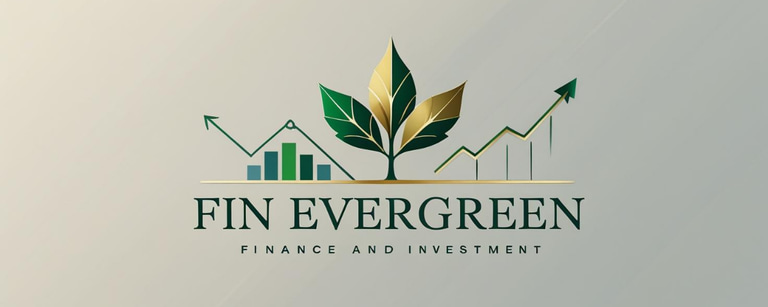ETFs vs. Mutual Funds: Which Is Better for Beginners?
Confused about ETFs vs. mutual funds? Learn the key differences, pros, cons, and which investment is best for beginners looking to grow wealth.
INVESTING


Introduction: The Beginner’s Dilemma
If you’re just starting your investing journey, you’ve probably heard of ETFs (Exchange-Traded Funds) and mutual funds. Both are designed to help you invest in a diversified portfolio without picking individual stocks. But which is the smarter choice for a beginner?
On the surface, ETFs and mutual funds look very similar. They both pool money from investors to buy a basket of stocks, bonds, or other assets. Yet, they differ in fees, flexibility, taxes, and ease of use—factors that can make a huge impact on your long-term wealth.
This guide breaks down everything you need to know about ETF vs. mutual fund investing and helps you decide which option fits your goals.
What Is a Mutual Fund?
A mutual fund is an investment vehicle that collects money from many investors and uses it to purchase a portfolio of assets (stocks, bonds, or both).
Managed by: Professional fund managers
Purchase: End of trading day (price = NAV, or Net Asset Value)
Fees: Often higher (expense ratios + possible sales loads)
Best for: Long-term investors who prefer a set-it-and-forget-it style
Example: The Vanguard 500 Index Fund (VFIAX) is a mutual fund that mirrors the S&P 500.
Pros of Mutual Funds:
✔ Professional management
✔ Easy to automate contributions
✔ Great for retirement accounts (401k, IRA)
Cons of Mutual Funds:
✘ Higher fees than ETFs
✘ No intraday trading (buy/sell only once per day)
✘ Higher minimum investment requirements ($1,000–$3,000 for many funds)
What Is an ETF?
An ETF (Exchange-Traded Fund) is similar to a mutual fund in that it holds a basket of assets, but it trades on an exchange just like a stock.
Managed by: Often passive (index-tracking) but can also be active
Purchase: Anytime during market hours (price fluctuates like a stock)
Fees: Usually lower than mutual funds
Best for: Beginners who want low-cost, flexible investing
Example: The SPDR S&P 500 ETF (SPY) is one of the most popular ETFs, tracking the S&P 500.
Pros of ETFs:
✔ Lower fees
✔ Can buy and sell throughout the day
✔ No minimum investment (just the price of one share or fractional shares)
✔ Tax-efficient
Cons of ETFs:
✘ Small trading fees on some platforms
✘ Beginners may overtrade due to flexibility
✘ Fewer automatic investing options than mutual funds (though this is changing)
Which Is Better for Beginners?
It depends on your priorities:
If you want low-cost, flexible investing → ETFs
If you want simplicity in retirement accounts → Mutual Funds
For most new investors in 2025, ETFs are the clear winner because they:
✅ Require little money to start
✅ Offer lower fees (which matter a lot long-term)
✅ Provide flexibility and tax efficiency
Fees: The Silent Wealth Killer
The #1 reason ETFs usually beat mutual funds for beginners comes down to fees.
Average ETF expense ratio: ~0.05–0.20%
Average mutual fund expense ratio: ~0.50–1.50%
That might sound small, but here’s why it matters:
👉 If you invest $10,000 for 30 years at 8%:
With an ETF (0.05% fee) → $99,400 more than
With a mutual fund (1% fee) → you lose a huge chunk of returns.
Over decades, fees compound against you.
Tax Efficiency: ETFs Take the Lead
ETFs use a unique “in-kind” creation and redemption process, which makes them more tax-efficient. Mutual funds, by contrast, often distribute capital gains, forcing investors to pay taxes even if they didn’t sell shares.
For beginners in taxable brokerage accounts, ETFs are usually more tax-friendly.
When a Mutual Fund Might Be Better
Mutual funds still have their place. You may prefer them if:
Your employer-sponsored 401k only offers mutual funds
You want automatic monthly contributions without worrying about trades
You’re investing in a target-date retirement fund, which is almost always offered as a mutual fund
Popular ETFs for Beginners
Vanguard S&P 500 ETF (VOO) – Tracks the top 500 U.S. companies
Schwab U.S. Broad Market ETF (SCHB) – Covers the entire U.S. market
iShares Core U.S. Aggregate Bond ETF (AGG) – For bond exposure
Vanguard Dividend Appreciation ETF (VIG) – Dividend growth stocks
Popular Mutual Funds for Beginners
Vanguard 500 Index Fund (VFIAX) – Classic S&P 500 index fund
Fidelity ZERO Total Market Index Fund (FZROX) – No expense ratio
T. Rowe Price Blue Chip Growth Fund (TRBCX) – Actively managed large-cap stocks
Vanguard Target Retirement 2050 Fund (VFIFX) – For long-term retirement planning
Beginner Mistakes to Avoid
❌ Chasing past performance – Just because a fund did well last year doesn’t mean it will again.
❌ Ignoring fees – Over decades, high expense ratios destroy returns.
❌ Investing without an emergency fund – Always save 3–6 months of expenses first.
❌ Overtrading ETFs – Flexibility is good, but resist the urge to time the market.
FAQ: ETFs vs. Mutual Funds
1. Can I lose money in ETFs or mutual funds?
Yes, both carry market risk. However, diversification lowers your risk compared to single stocks.
2. Are ETFs always cheaper than mutual funds?
Almost always, but a few index mutual funds (like Fidelity’s ZERO funds) are extremely low-cost too.
3. Should I invest in both ETFs and mutual funds?
Yes, many investors hold both depending on account type. For example, ETFs in a brokerage account and mutual funds in a 401k.
4. Which grows faster — ETFs or mutual funds?
Growth depends on the underlying assets, not the type of fund. The difference is mainly in fees and convenience.
Conclusion: The Beginner’s Choice
Both ETFs and mutual funds are powerful tools to build wealth. But in today’s investing world, ETFs usually win for beginners thanks to:
✅ Lower fees
✅ No minimums
✅ Tax efficiency
✅ Flexibility
That said, if you’re investing through a retirement plan or want an autopilot approach, mutual funds still make sense.
The best option is the one that helps you start now—whether that’s buying your first $50 of an ETF or contributing to a mutual fund in your 401k.
Remember: It’s not about which fund type is “perfect.” It’s about starting early and staying consistent.
Fin Evergreen
Empowering you with financial knowledge and insights.
© 2025 Finevergreen — For educational purposes only, not financial advice. By using this site, you agree that we may use cookies and affiliate links (at no extra cost to you). We are not responsible for financial outcomes or third-party content. Please consult a licensed professional before making investment or financial decisions.
Contact: support@finevergreen.com
